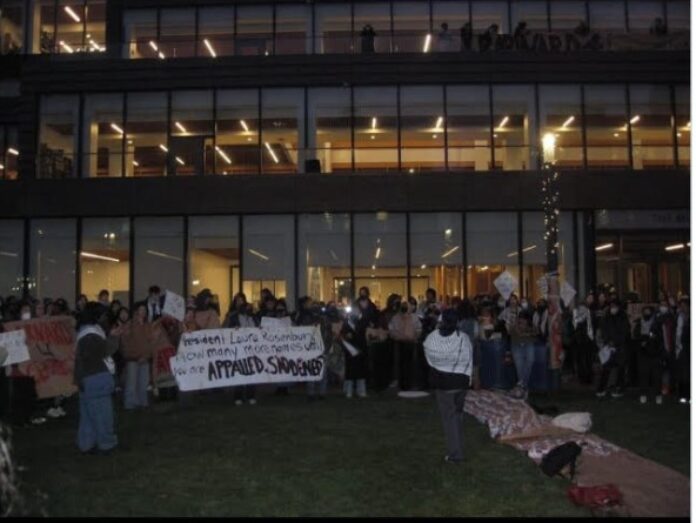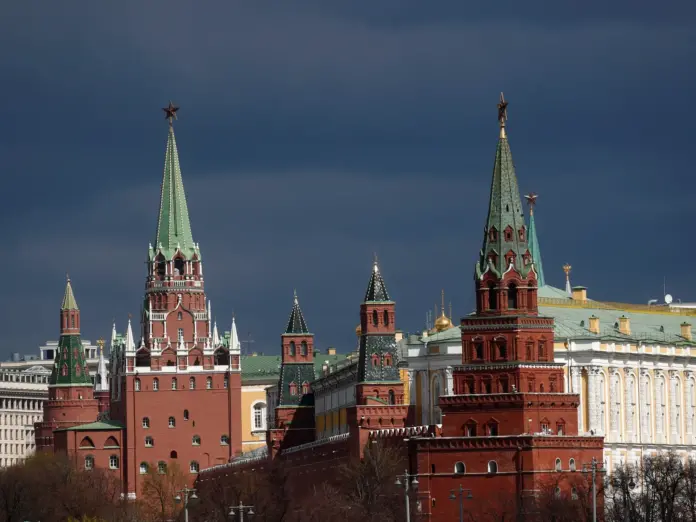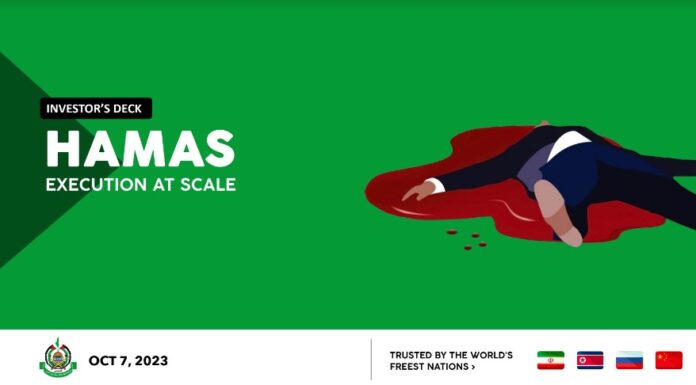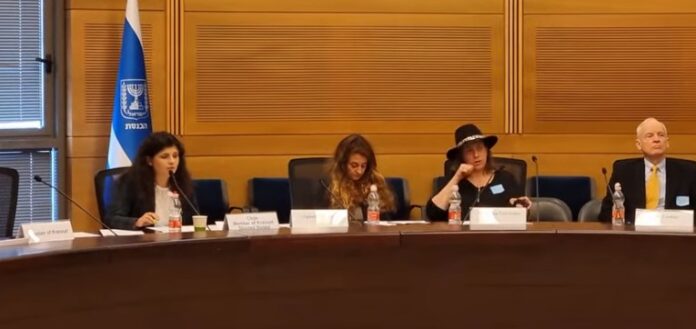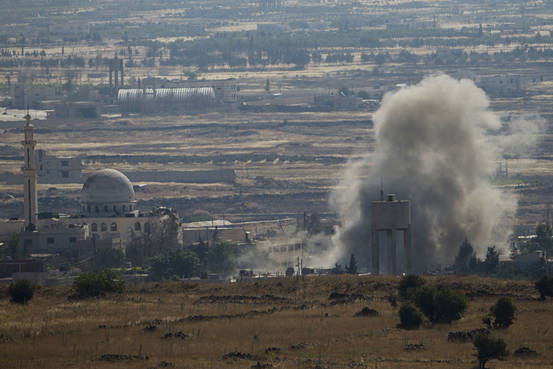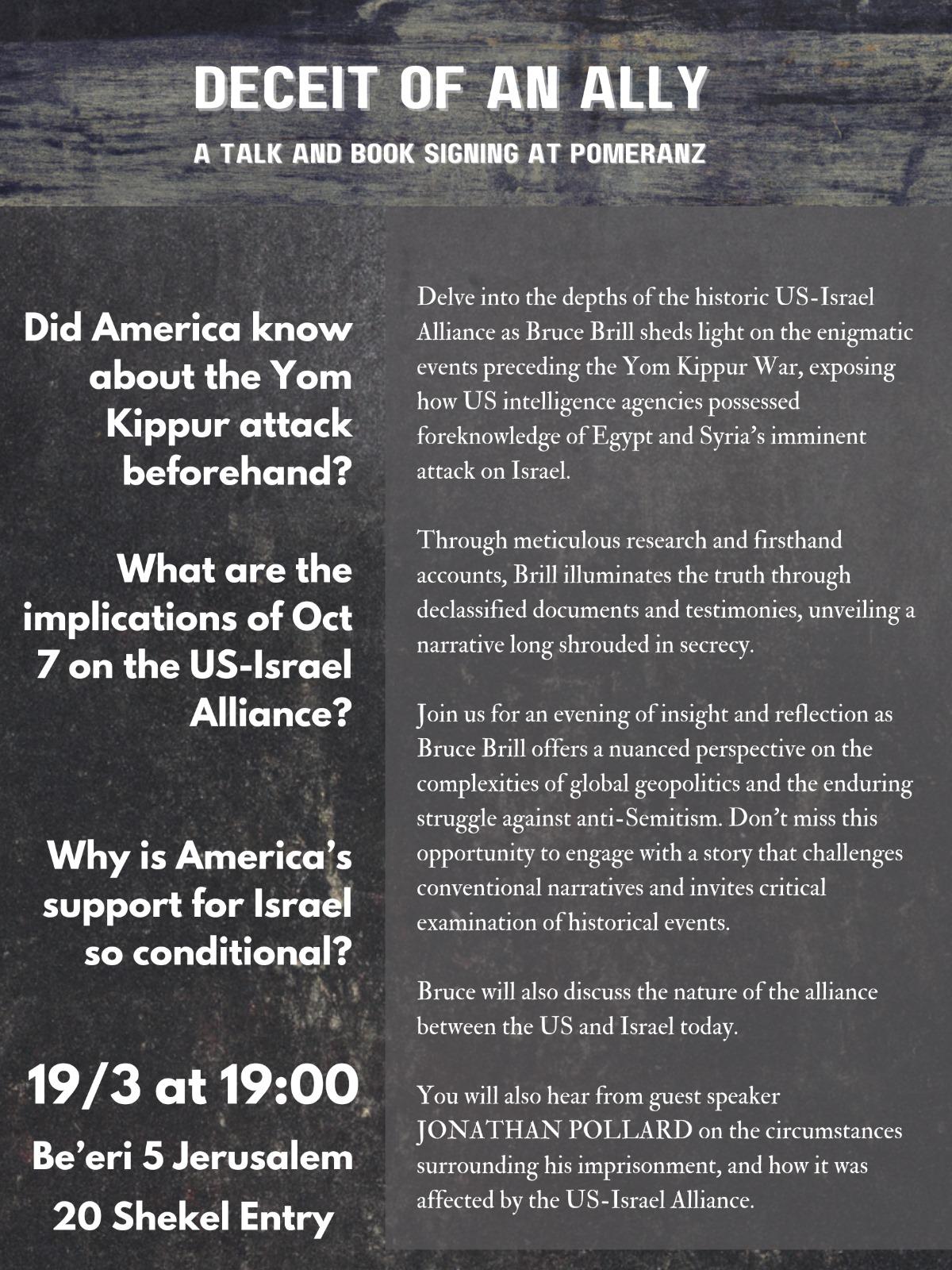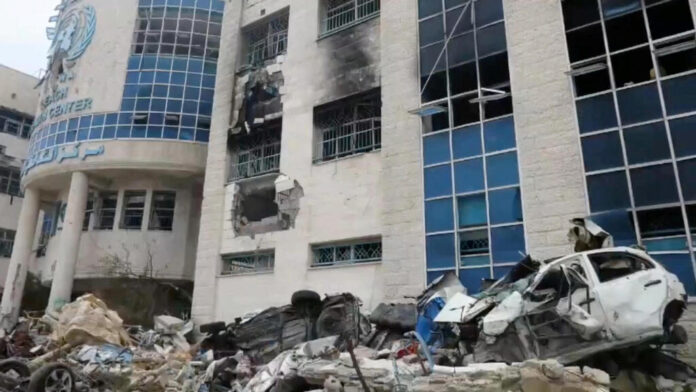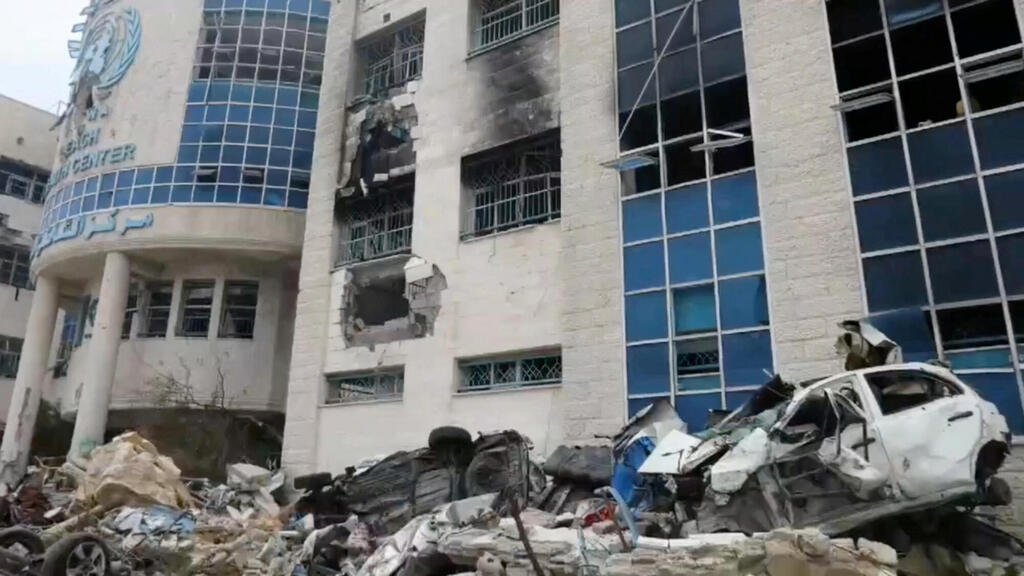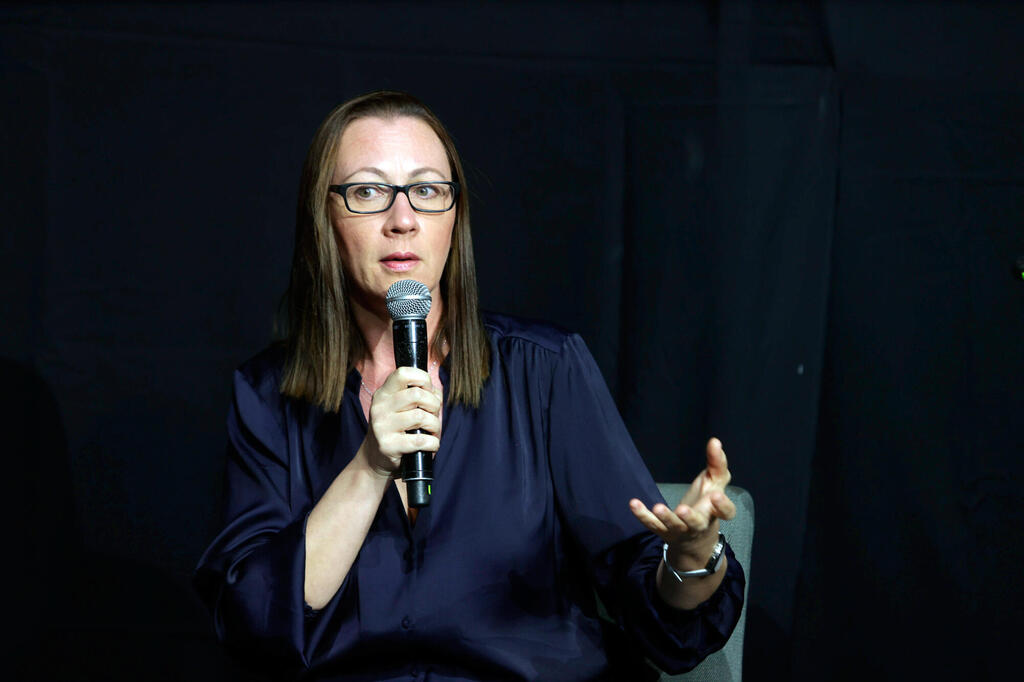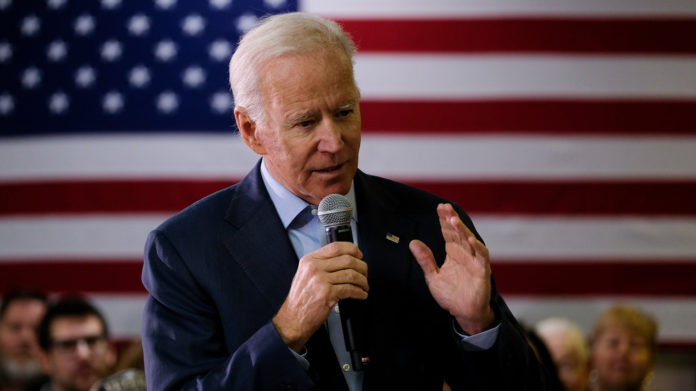Shai Davidai, an Israeli assistant professor at the Columbia University Business School, is being investigated by the Columbia administration. Davidai gained prominence by criticizing the failure of the university to respond to antisemitism on campus. He charged the university’s leadership for letting anti-Israel sentiment and antisemitism flourish. When asked about the charges, Davidai stated that he could not comment on the details because of the university’s bylaws; he added that the University’s Office of Equal Opportunity and Affirmative Action was carrying out the investigation. Davidai broke into the public sphere soon after Hamas’s October 7 attack on Israel, which triggered widespread anti-Israel protests on all college campuses, including Columbia. A video of his impassioned speech went viral instantly. Clearly, his advocacy for Israel and Jews made him a target. Law firm Kasowitz Benson Torres represents Davidai.
In response to allegations, Davidai said, “Nothing I have done in my advocacy in the past five months has been about any protected class… Unless they want to claim that supporting terrorism is a protected class, there’s no grounds for this investigation.” Davidai announced on social media that he has repeatedly advocated for Palestinian rights.
Due to the surge of antisemitic incidents on campus, Columbia University is facing investigations by Congress. CNN reported that the House Education and Workforce Committee announced a hearing on April 17 featuring Columbia President Minouche Shafik and the two co-chairs of the board of trustees: Claire Shipman and David Greenwald. Last month, the House Education Committee widened its campus antisemitism investigation to include Columbia. It demanded the Ivy League school turn over a wide range of documents to aid that probe. “Some of the worst cases of antisemitic assaults, harassment, and vandalism on campus have occurred at Columbia University,” said Rep. Virginia Foxx, the Republican chairwoman of the committee. “Due to the severe and pervasive nature of these cases, and the Columbia administration’s failure to enforce its own policies to protect Jewish students, the Committee must hear from Columbia’s leadership in person to learn how the school is addressing antisemitism on its campus.”
At a roundtable event held by the Committee earlier this month, Eden Yadegar, a junior at Columbia University and the president of Students Supporting Israel, described how Jewish students were attacked by people wielding sticks outside of the university library. “We have been attacked by sticks outside our library. We have been attacked by angry mobs and we have been threatened to ‘Keep f—ing running.’” Last fall, a Columbia student who was hanging posters on campus in support of Israel was assaulted. Days later, a mobile “doxxing” billboard drove outside the entrance of Columbia displaying the names and faces of students who a conservative nonprofit said were linked to a statement blaming Israel for the Hamas terror attack.
In response, Samantha Slater, the Columbia spokesperson, told CNN that antisemitism is “antithetical” to the university’s values. “Columbia is committed to combating antisemitism and we welcome the opportunity to discuss our work to protect and support Jewish students and keep our community safe.”
Earlier this month, the Columbia University Office of the President published a report by its Task Force on Antisemitism. According to the report, the Task Force has heard of “the isolation and pain many Jewish and Israeli Columbia affiliates have experienced in recent months. While mourning Hamas’s unspeakable atrocities on October 7, some Jewish and Israeli Columbia affiliates have been the object of racist epithets and graffiti, antisemitic tropes, and confrontational and unwelcome questions, while others have found their participation in some student groups that have nothing to do with politics to be increasingly uncomfortable. Israeli Columbia affiliates have been criticized and stereotyped for serving in the military, something most Israelis are required to do. Some Jewish students have felt isolated in supporting Israel, while others have felt isolated in criticizing Israel. While there is strong support among Jewish and Israeli Columbia affiliates for the right to protest, as well as widespread heartbreak about the tragic loss of civilian life in Gaza, many have heard chants at protests like ‘Globalize the Intifada’ and ‘Death to the Zionist State’ as calls for violence against them and their families.”
Allegations against Davidai appeared on the pages of the Columbia student newspaper, the Spectator, which reported in mid-February that a group of social psychology graduate students from the Society of Personality and Social Psychology (SPSP) sent a letter on Feb. 7 to the academic society’s executive committee calling to sanction Davidai; a member of SPSP charged that he“has intentionally targeted and put vulnerable students from multiply marginalized racial, ethnic, and religious backgrounds at risk through his actions.” The letter was authored by a group, “SPSP Graduate Students Against Racism,” comprised of individuals “from racially minoritized backgrounds, pro-Palestinian, and/or themselves Palestinian” and did not feel “safe disclosing [their] identities given Davidai’s targeting of individuals—especially Palestinians and students of color—who have expressed similar views.”
According to the Spectator, the letter cites seven incidents of Davidai’s social media activity from Oct. 13, 2023, to Jan. 20, 2024, concerning pro-Palestinian campus protests. The letter states that these posts “have violated SPSP’s Code of Conduct with respect to expected and prohibited behavior from SPSP members.”
The Spectator brings some examples:
– Dec. 11, 2023 tweet, according to the Spectator, the letter states that Davidai called for the expulsion of Columbia students and that he “misrepresent[ed] pro-Palestinian protests as calls for genocide.” That “By calling for peaceful and non-violent student protestors to be expelled and misrepresenting their slogans as calls for genocide (e.g., equating ‘intifada’ with calls for genocide of Jews), Dr. Davidai put vulnerable students at risk of violence from bad faith actors, and encouraged serious administrative action from the university,” the letter reads. “It is important to note here that many of these student protestors have lost multiple family members in the ongoing military operation in Gaza, and are grieving.”
– Jan. 16 tweet, according to the Spectator, in which Davidai issued “another ‘call to action’ for his followers to write to various Columbia administrators, including University President Minouche Shafik, to suspend student groups [Students for Justice in Palestine] and [Jewish Voice for Peace]. The tweet included a link to a pre-prepared email script which called for the suspension of SJP and JVP student organizations.”
– Jan. 16 tweet, according to the Spectator, Davidai made in an email “serious and spurious allegations against an individual Muslim woman student at Columbia, putting a student from an already vulnerable group at elevated risk, and contained links to tweets which doxxed and smeared this student on social media.” Davidai said, “I have never doxxed a Columbia student, I have never named a Columbia student, I have never targeted a Columbia student.” He added that he has posted videos taken in public space about public comments in which students participated. Conservative media group Accuracy in Media deployed “doxxing trucks” to Columbia’s Morningside campus on Oct. 25, 2023, displaying the names and faces of affiliates allegedly involved in student groups who signed onto a pro-Palestinian student statement released on Oct. 12, 2023, under the words “Columbia’s Leading Antisemites.” The truck recirculated on the Morningside campus several times following its initial appearance. “Most of the students in these protests are good people … [but] they have been hijacked by the organizers of SJP, JVP, and [Columbia University Apartheid Divest],” Davidai said, adding that he feels bad for the students who are uninvolved because “their entire year is being disrupted by a small radical group that doesn’t care about education… they care about revolution.”
– Jan. 17 tweet where Davidai, according to the Spectator, described Columbia students as “pro-terror,” with the authors of the letter writing that they were “highly concerned that this … pattern of behavior will only work to endanger students at Columbia and those who wish to express their support for Palestine and Palestinians at the SPSP conference.” The authors of the letter called these violations “a threat to the safety and inclusivity of the SPSP community both within and beyond formal Society events, particularly for individuals of Muslim and Arab backgrounds, and those who advocate for Palestinian liberation, who are already experiencing heightened vulnerability.”
Horrified by the accusations against Davidai, a group named “We Are Tov” started a petition titled “Defend Davidai: Demand that Columbia End its Persecution of Jewish Professor Shai Davidai” on March 11, 2024. The petition states, “If Shai Can’t Speak, How Can I?” The petition begins by declaring, “We, the undersigned, are deeply troubled by the baseless investigation initiated by Columbia University against Assistant Professor Shai Davidai at Columbia’s Business School. He has courageously spoken out against the hostile environment that Jewish and Israeli individuals face on Columbia’s campus. Since October 7th, Shai has been a vocal advocate for Jewish students’ safety and rights. Yet, instead of supporting him and the students he represents, Columbia’s leadership has turned a blind eye to antisemitism and failed to provide a safe environment for Jews on campus. Now, in a blatant act of retaliation, Columbia has launched an internal investigation against Shai, aiming to silence him for speaking out against systemic antisemitism and the university’s failure to address it.”
According to the petitioners, “Over the past five months, Jewish students at Columbia have been locking themselves in their dorm rooms for fear of being assaulted. They have been spat on, attacked, bullied, and vilified. And they have been harassed by pro-terror student organizations that justify, excuse, and celebrate the massacre of Jews while chanting for their eradication ‘by any means necessary.’ These organizations – which have been suspended due to their hate-filled rhetoric – continue to hold unauthorized pro-terror rallies on campus without any fear of disciplinary action. Columbia refuses to enforce the terms of their suspension but instead pursues this baseless investigation into Shai. Shai’s commitment to holding Columbia to account for their actions has resulted in death threats.”
According to the petition, Davidai “is relentlessly targeted on social media (including by Columbia students and faculty). He – out of fear of being assaulted – avoids spending time on campus. And now, in the ultimate act of betrayal, he is being persecuted by Columbia’s leadership, which is retaliating against him with a sham investigation based on meritless “complaints.” Shai should be applauded for his actions – not punished. His refusal to remain silent has empowered students to speak out against antisemitism on campuses everywhere. By silencing Shai, Columbia is effectively silencing Jewish students everywhere. After all, if a respected professor cannot speak out against antisemitism without facing retribution, how can a student be expected to do so?”
The petitioning group stated its demands: “Drop the Investigation: We demand that Columbia University immediately drop its internal investigation against Professor Davidai. Create a Safe Environment: Columbia’s leadership must take proactive steps to create a safer and more inclusive environment for Jewish students and faculty. This includes: Punishing and enforcing sanctions against organizations that harass and bully Jewish students. Working with law enforcement and aiding in the prosecution of individuals who commit hate crimes against Jewish individuals. Encouraging Jewish students to report harassment without fear of reprisal. Implementing increased safety and security measures for Jewish students and organizations.”
IAM will report on this case as it unfolds.
Israeli professor who’s slammed campus antisemitism says Columbia investigating him
Shai Davidai calls probe unwarranted unless ‘supporting terrorism is a protected class,’ says university ‘cannot just create some sort of Dreyfus trial in order to get rid of me’
By LUKE TRESS9 March 2024, 4:05 am
New York Jewish Week via JTA — Shai Davidai, an Israeli assistant professor at Columbia University’s business school, has gained prominence over the past five months for criticizing the university’s response to campus antisemitism. Now, he says the university has placed him under investigation.
Davidai declined to comment on the details of the investigation, but said it was being carried out by the university’s Office of Equal Opportunity and Affirmative Action, which responds to allegations of harassment and discrimination on campus.
Davidai broke into public view just weeks after Hamas’s October 7 invasion of Israel triggered widespread anti-Israel protests on college campuses, including at Columbia, when a video of an impassioned speech he gave went viral. Since then, he has emerged as a leading voice criticizing universities for permitting anti-Israel sentiment to flourish and bleed into antisemitism.
Speaking to the New York Jewish Week on Friday, he rejected the idea that he has publicly targeted individual students and protected groups, saying his condemnations are of student organizations.
“Nothing I have done in my advocacy in the past five months has been about any protected class,” he said.
“Unless they want to claim that supporting terrorism is a protected class, there’s no grounds for this investigation.”
The New York law firm Kasowitz Benson Torres confirmed that it was representing Davidai in the case and that Columbia was investigating him. The university said it could not comment on personnel matters.
“As a general matter, if the University receives a formal complaint, it will review and consider the complaint under established processes,” a spokesperson told the New York Jewish Week.
Davidai said he intends to fully respect the investigation and cooperate with investigators. But he compared the investigation to the late 19th-century Dreyfus Affair, an infamous antisemitic incident in which a French Jewish officer was falsely accused and convicted of treason.
“I wanted to make it public,” he said. “I really do believe that sunlight is the best disinfectant, and Columbia needs to be clear that many people are invested in this investigation, and they can’t just create some sort of Dreyfus trial in order to get rid of me.”
The investigation of one of the most outspoken critics of Columbia’s response to antisemitism comes as the university has faced blowback for its approach to activism and bigotry surrounding the Israel-Hamas war. It is one of several elite colleges to face scrutiny from students, faculty, donors and government officials over its handling of antisemitism since Hamas’s October 7 invasion of Israel, when the Gaza-governing terror group slaughtered 1,200 people in southern Israel, mostly civilians massacred amid brutal atrocities, and abducted 253 to Gaza — where 130 are still held.
At Columbia, an Israeli student was allegedly assaulted on campus in October, and later in the fall, the school suspended two anti-Zionist student groups for unauthorized protests. Now, the university is facing investigations by Congress and the Biden administration as well as lawsuits from Jewish students. This week, a report from the school’s antisemitism task force said that Jewish students were experiencing “isolation and pain.”
On Friday, Davidai publicly announced the investigation on social media, adding that he has repeatedly advocated for Palestinian rights in public statements.
Davidai was an early critic of Columbia’s approach to anti-Israel protests after October 7. In the October speech that went viral, Davidai condemned the university for allowing “pro-terror” student demonstrations and told parents that their children on Ivy League campuses were not safe.
“I want you to know one thing: We cannot protect your child,” he said at an outdoor vigil less than two weeks after the Hamas attack. “I’m speaking to you as a dad, and I want you to know, we cannot protect your children from pro-terror student organizations, because the president of Columbia University will not speak out against pro-terror student organizations.”
His advocacy for Jews and Israelis has made him a target on campus and beyond. Last month, a group of graduate student members of the Society of Personality and Social Psychology, an academic association of which Davidai is also a member, demanded that the society sanction him.
The signatories claimed that he “intentionally targeted” vulnerable students, citing online posts in which he called for the continued suspension of the pro-Palestinian groups Students for Justice in Palestine and Jewish Voice for Peace. In one post, above video of an unsanctioned protest, he wrote, “It’s time for expulsions.”
Davidai said he does not speak out against individual students or groups of people but against student organizations.
Davidai’s activism has taken aim at protests where student groups have chanted “globalize the intifada” and “from the river to the sea,” slogans that Israel advocates and antisemitism watchdogs view as calls to violence. Student organizations have also condemned “Zionists” on campus. Columbia student groups have collaborated with the group Within Our Lifetime, New York’s most active and visible pro-Palestinian organization, which endorsed the October 7 attack and whose leadership has explicitly supported Hamas, an Islamist terror group avowedly seeking to destroy Israel.
He and his wife, the Israeli writer and translator Yardenne Greenspan, have also said that they’ve faced adversity because of their activism outside of Columbia. They wrote in a Tablet essay last month that they have lost friends and faced threats since October 7, even as they favor policies that would be considered squarely left-wing in Israel, including opposition of Israel’s occupation of the West Bank. “For our friends, our refusal to apologize for Israel’s existence simply deemed us intolerable,” they wrote.
Davidai still does not believe the university is taking campus antisemitism seriously. He applauded the antisemitism task force for its report but said he does not think it will be effective. He feels that the body is a cover for the administration to avoid taking concrete steps to protect Jewish students and has declined to speak with it.
“I see the university as using the task force as a fig leaf for lack of action and I refuse to be that,” he said. “I refuse to make kosher the university’s lack of action.
Columbia University leaders to get grilled by Congress at antisemitism hearing
The president and board chairs of Columbia University have agreed to testify next month at a Congressional hearing on campus antisemitism.
The House Education and Workforce Committee announced Monday it will hold a hearing on April 17 featuring Columbia President Minouche Shafik and the two co-chairs of the board of trustees: Claire Shipman and David Greenwald.
Shafik had been invited to testify at the disastrous December hearing where the presidents of Harvard University, the Massachusetts Institute of Technology and the University of Pennsylvania struggled to answer questions about whether calls for the genocide of Jews would violate school policies. The Columbia president was unable to attend in December due to long-scheduled travel, according to university spokesperson Samantha Slater.
Within weeks, the leaders of both Harvard and Penn had quit amid firestorms of controversy.
Last month, the House Education Committee widened its campus antisemitism investigation to include Columbia and demanded the Ivy League school turn over a wide range of documents to aid that probe.
“Some of the worst cases of antisemitic assaults, harassment, and vandalism on campus have occurred at Columbia University,” said Rep. Virginia Foxx, the Republican chairwoman of the committee, in a statement. “Due to the severe and pervasive nature of these cases, and the Columbia administration’s failure to enforce its own policies to protect Jewish students, the Committee must hear from Columbia’s leadership in person to learn how the school is addressing antisemitism on its campus.”
At a roundtable event held by the committee earlier this month, Eden Yadegar, a junior at Columbia University, described how Jewish students were attacked by people wielding sticks outside of the university library.
“We have been attacked by sticks outside our library. We have been attacked by angry mobs and we have been threatened to ‘Keep f—ing running,’” said Yadegar, who is the president of Students Supporting Israel at Columbia University
Columbia has said that antisemitism is “antithetical” to the university’s values.
“Columbia is committed to combating antisemitism and we welcome the opportunity to discuss our work to protect and support Jewish students and keep our community safe,” Slater, the Columbia spokesperson, told CNN in a statement on Monday.
In November, the Department of Education launched an investigation into Columbia and other universities after getting complaints about alleged incidents of antisemitism and Islamophobia.
Last fall, a Columbia student who was hanging posters on campus in support of Israel was assaulted. Days later, a mobile “doxxing” billboard drove outside the entrance of Columbia displaying the names and faces of students who a conservative nonprofit said were linked to a statement blaming Israel for the Hamas terror attack.
Shai Davidai, an assistant professor at the Columbia Business School, called Shafik a “coward” in a fiery speech last year criticizing the university president for failing to quiet “pro-terror” voices at the school.
has opened an investigation into my advocacy for the Jewish and Israeli students, faculty, and staff at the university.
I write with great concern over the looming expiration of the November 10 suspension of student groups “Students for Justice in Palestine” (SJP) and “Jewish Voice for Peace” (JVP). These groups’ re-admission to campus should be barred because (1) they have openly violated their suspension order by continuously operating on campus during the time of their suspension through alignments with other student groups that “cover” for them and do their bidding; and (2) these groups are under the direction of two national organizations with ties to designated terrorist organizations and they therefore present an enormous danger to the Columbia community and violate the material support prohibitions of the Anti-Terrorism Act of 1996, 18 U.S.C. § 2339a.
I. SJP and JVP Violated The Suspension Order and Must Not be Reinstated
In the statement suspending SJP and JVP from Columbia’s campus, Senior Vice President Gerald Rosberg conditioned the lifting of these groups’ suspension upon “demonstrating a commitment to compliance with University policies.” Not only has SJP and JVP failed to demonstrate such commitment, they have openly flaunted their ability to violate the suspension with impunity.
Before addressing SJP’s violation of the suspension, it is important to understand a little about its organizational structure. SJP is a chapter organization of a larger entity, National SJP. Both National SJP and also the American Muslims for Palestine (AMP) have outreach personnel which, as described on the AMP website, ”work in broad-based coalitions and support campus activism through Students for Justice in Palestine.” AMP’s Chairman is a co-founder of SJP, and AMP’s Director of Outreach, Taher Herzallah, is tasked with coordinating and guiding SJP chapters nationwide. National SJP’s website describes itself as providing “support to about 200 SJP chapters on university and college campuses.”
On or about December 7, soon after Columbia suspended SJP and JVP, National SJP conducted a workshop where one of the speakers was a Columbia student who introduced herself as “Maryam, an organizer of Columbia SJP and Columbia University Apartheid Divest.” She listed her title as “Maryam, Columbia SJP.” In a December 19, 2023 opinion piece by Maryam Alwan in the Columbia Spectator, the author of the piece identifies herself as an “SJP organizer.”
At the National SJP workshop, speaker Maryam stated:
“The Columbia University Apartheid Divest [CUAD] Coalition became entirely inactive in 2020 and it was revitalized once SJP and JVP were recently suspended last month.” https://twitter.com/thestustustudio/status/1732985036805161154.
“We had a protest, the first protest after the suspension of SJP and JVP, that was hosted by another organization on campus because we can’t host protests anymore.” https://twitter.com/thestustustudio/status/1732985038663274825.
Thus, the leader of SJP explains that SJP revitalized a dormant shell organization, CUAD Coalition, to stand in the shoes of SJP and do its bidding to get around the suspension order. The National SJP workshop included a panelist teaching campus chapters to develop a coalition explicitly for the purpose of evading University suspension orders and allowing SJP chapters to continue their operations after being suspended. https://twitter.com/thestustustudio/status/1733661122526339206?s=20. And Maryam indicates that Columbia SJP followed that teaching to the letter: she openly touts that the very first protest after SJP’s suspension was hosted by CUAD Coalition “because we can’t host protests anymore.”
While Maryam identified herself at the National SJP workshop as a leader of SJP at Columbia, she also introduced herself as a leadership figure of CUAD Coalition – CUAD Coalition being the organization to host protests after SJP’s suspension. As Maryam proceeded to explain the organizational structure of CUAD Coalition, she stopped herself and commented that “I don’t want to say too much, because I probably shouldn’t expose the current organizational structure.” https://twitter.com/thestustustudio/status/1732985047081226315. Despite Maryam’s reticence to reveal the organizational structure, other CUAD Coalition members have been candid that the CUAD Coalition is organized with an “internal structure whereby SJP, JVP, and a committee of impacted Palestinian students are at the top.” See, Columbia Spectator, November 29, “Over 80 Student Groups Form Coalition” (stating that “CUAD Coalition was formalized after the University suspended SJP and JVP”).
With Maryam wearing one hat as the leader of Columbia SJP, and another hat as a leader of CUAD Coalition, coupled with her unwillingness to “expose” the organizational structures of each, and her colleagues’ admission that SJP and JVP run the coalition, there is but one conclusion to be reached: SJP and JVP are the master puppeteers of CUAD Coalition, which acts as a cover for SJP. As Maryam openly acknowledged, “SJP can’t host protests anymore” and this new arrangement is a mechanism for violating the suspension order with impunity. The noncompliance should not be countenanced, and reinstatement of SJP and JVP should be denied on this basis.
II. SJP and JVP Should be Suspended Because of the Ties to Designated Terror Organizations
While SJP’s failure to comply with the suspension order is disabling in and of itself, in addition to their open violation of this reinstatement condition of compliance, SJP’s open support of terrorism, and receipt of funds from terrorist organizations, is an equally compelling and more than adequate basis to continue their suspension.
In particular, Maryam stated at the December 7 National SJP workshop that she “insist[s] on using “from the river to the sea” in our protests. This slogan was called out by the United States Congress (a month before Maryam’s remarks at the National SJP workshop) as an explicit call for the genocide of the Jewish people. Alarmingly, through Maryam, SJP continues — in the face of federal censure stemming from the use of this term and acknowledgement of it as a call for genocide – to “insist” on its use on Columbia’s campus, placing every Jewish student in danger and mortal fear. No group should be permitted on campus that, upon hearing our federal government define a slogan as a genocide call, states they insist on the entitlement to instill fear in fellow students by the open and notorious use of the phrase.
Furthermore, SJP’s benefactor organization, AMP, touts that it provides to the SJP chapters that it supports through campus activism “free materials, information, speakers, infrastructure and grants.” AMP’s Executive Director, Osama Abuirshaid, is linked to the Hamas military wing (Izz ad-Din al-Qassam) and appears on its website, and has ties to Hamas’ predecessor American support organizations, the Holy Land Foundation and the Palestine Committee, which were disbanded in the U.S. for supporting Hamas. Given these clear linkages between AMP and Hamas, this amounts to Columbia’s SJP chapter pursuing the agenda of AMP (and through AMP, pursuing the agenda of Hamas), lending material support to achieve the aims of these terrorist groups in violation of the Anti-Terrorism Act of 1996, 18 U.S.C. § 2339a.
Beyond SJP’s ties to Hamas through AMP and National SJP, Maryam stated at the National SJP workshop that SJP enjoys the services of a dedicated legal team through Palestine Legal. Palestine Legal put on a joint “Law Enforcement Contact and Protesting” seminar with CUNY in mid-November. The panelists directed attendees to consult the “Know Your Rights” materials on CUNY Legal’s website, which caution attendees with guidance when considering “joining or supporting an organization or individual that the government has designated as terrorist.” That the legal advisors to Columbia SJP anticipate the need to guide club members about issues to consider when being invited to join terrorist organizations is beyond frightening.
Lastly, given the coordination role of National SJP in directing its affiliate campus chapters, it is telling that sister SJP chapters at other universities have already begun to express support for the Houthis in urging the United States to refrain from self-defense in that conflict. As the Biden administration considers redesignating the Houthis as a terrorist organization after a short de-listing, SJP’s consistent alignment with terror groups Hamas, AMP and now the Houthis, is alarming. Coupled with Columbia SJP’s ties with Hamas and AMP, suspending this terror group from campus is necessary to maintain proper safety measures and responsibly manage Columbia’s risk profile. If a terror act is committed upon a community member by an SJP-aligned actor in the face of this overwhelming collection of terror-affiliations, the University’s risk exposure would be extraordinary.
III. JVP acts in Partnership with SJP and should Similarly be Suspended
While I am unaware of specific ties among JVP and other terrorist organizations, JVP stands in partnership with SJP (see, Columbia Spectator, December 19, 2023 opinion piece by Maryam Alwan, identifying the two groups as being in a horizontal alliance). As partners answerable for one another’s actions under the law, JVP is imbued with all of the actions attributable to SVP. This, apart from JVP’s open noncompliance with the suspension order, requires JVP’s continued suspension for all of the reasons stated in Section II, above.
Summary
In summary, SJP and JVP have openly violated the November 10 suspension order and, as such, cannot be reinstated, because compliance with University policies is a precondition to reinstatement. Further, the provision of material support to AMP and Hamas places the entire community and risk and violates our country’s terrorism laws, and for this reason as well, requires suspension of these groups.
We need to know your plan for maintaining safety, and in particular safety of Jews, on campus. Please direct your response to Gerard Filitti, gerard@thelawfareproject.org before Friday, January 19.
Sincerely,
#EndJewHatred
#EndJewHatred is a non-partisan international grassroots civil rights movement that unites ordinary people, activists, and organizations from around the world who support the cause that defines the movement: to end Jew-hatred in our lifetime.

DEFEND DAVIDAI: Demand that Columbia End its Persecution of Jewish Professor Shai Davidai
If Shai Can’t Speak, How Can I?
We, the undersigned, are deeply troubled by the baseless investigation initiated by Columbia University against Assistant Professor Shai Davidai at Columbia’s Business School. He has courageously spoken out





